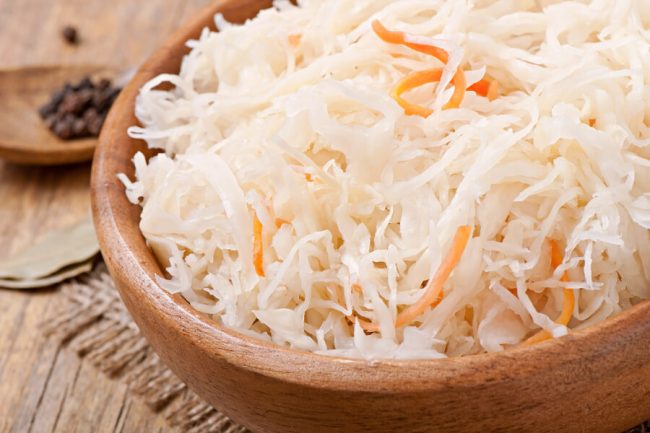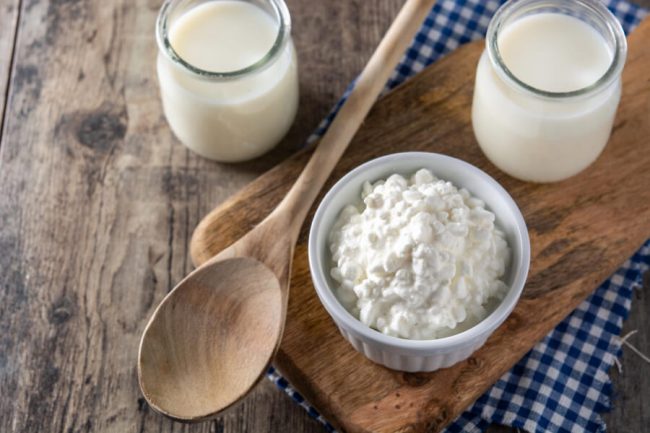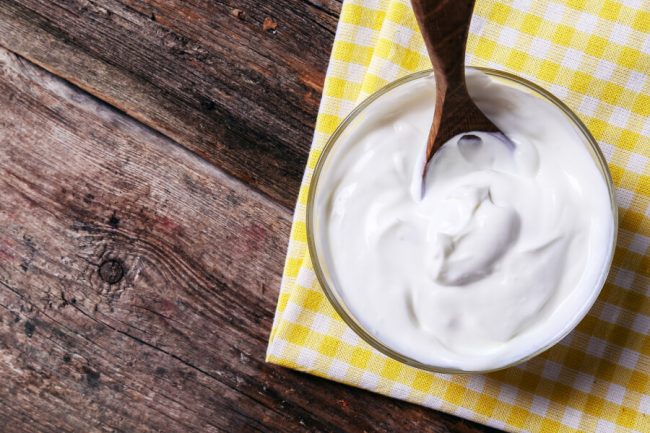Gut health plays a pivotal role in our overall well-being, influencing everything from digestion to immunity.
Incorporating fermented foods into your diet is a delicious and natural way to support gut health, thanks to the beneficial probiotics they contain.
In this guide, we’ll explore eight gut-healing fermented foods that you can easily add to your meals to enhance your digestive health and overall wellness.
Sauerkraut
Sauerkraut, made from fermented cabbage, is rich in probiotics that support a healthy gut microbiome. The fermentation process enhances the bioavailability of nutrients, making sauerkraut not only a probiotic powerhouse but also a source of vitamins C and K, iron, and fiber. Consuming sauerkraut regularly can help balance gut bacteria, improve digestion, and even boost the immune system .
Kombucha
Kombucha is a fermented tea that has gained popularity for its refreshing taste and gut health benefits. It contains a unique blend of probiotics, antioxidants, and organic acids, which aid digestion, reduce inflammation, and support detoxification. Drinking kombucha can help replenish good bacteria in the gut.
Kimchi
Kimchi, a traditional Korean dish made from fermented vegetables like cabbage and radishes, is renowned for its gut-healing properties. Rich in probiotics, fiber, and vitamins, kimchi supports a healthy digestive system by promoting the growth of beneficial gut bacteria. Additionally, the fermentation process enhances the bioavailability of nutrients, making kimchi a nutritious and flavorful addition to any diet .
Tempeh
Tempeh is a fermented soy product that serves as an excellent plant-based protein source. The fermentation process breaks down phytic acid in soybeans, making the nutrients more accessible and easier to digest. Tempeh is rich in probiotics, which help maintain a healthy gut flora balance, and its high fiber content supports regular bowel movements and overall digestive health .
Kefir
Kefir is a fermented dairy product similar to yogurt but with a thinner consistency and a more diverse probiotic profile. It contains up to 30 strains of beneficial bacteria and yeast, making it one of the most potent probiotic foods available. Kefir is particularly beneficial for those with lactose intolerance, as the fermentation process reduces the lactose content, making it easier to digest while providing gut-healing probiotics .
Yogurt
Yogurt is a well-known source of probiotics, but not all yogurts are created equal. To reap the gut-healing benefits, choose plain, unsweetened yogurt with live and active cultures. These probiotics can help restore the balance of good bacteria in the gut, improve digestion, and enhance the immune system. For those with lactose intolerance, Greek yogurt or dairy-free alternatives made from coconut or almond milk can be excellent options .
Miso and Natto
Miso and natto are traditional Japanese fermented foods made from soybeans. Miso, commonly used in soups, is rich in probiotics, vitamins, and minerals, which support gut health and boost the immune system. Natto, known for its distinct flavor and texture, contains nattokinase, an enzyme that supports heart health and enhances digestion. Both foods are excellent additions to a gut-healing diet, offering a variety of nutrients and beneficial bacteria .
Apple Cider Vinegar
Apple cider vinegar (ACV) is a fermented product known for its numerous health benefits, including aiding digestion. The acetic acid in ACV helps increase stomach acid, which can improve digestion and nutrient absorption. Additionally, ACV contains probiotics and enzymes that support gut health. To incorporate ACV into your diet, try adding a tablespoon to a glass of water before meals, or use it as a salad dressing base .
How to add fermented foods Into your routine?
Adding fermented foods to your diet can be simple and enjoyable. Start by incorporating small amounts of these foods into your meals and gradually increase the quantity as your palate adjusts. Here are some easy ways to include them:
- Sauerkraut and Kimchi: Add a spoonful to salads, sandwiches, or as a side dish.
- Kombucha: Enjoy a glass with meals or as a refreshing mid-day drink.
- Tempeh: Use as a meat substitute in stir-fries, salads, or sandwiches.
- Kefir and Yogurt: Include in smoothies, or use as a base for breakfast bowls with fruits and nuts.
- Miso and Natto: Incorporate into soups, sauces, or as a topping for rice dishes.
- Apple Cider Vinegar: Use in salad dressings, marinades, or drink diluted in water.
The Gut-Healing Power of Fermented Foods
Fermented foods are rich in probiotics, which are beneficial bacteria that promote a healthy gut microbiome. A balanced gut microbiome is essential for efficient digestion, nutrient absorption, immune function, and even mental health. Regular consumption of fermented foods can help maintain this balance, prevent digestive issues, and support overall well-being.
Potential Risks and Side Effects of Fermented Foods
While fermented foods are generally safe and beneficial, they may cause side effects in some individuals, particularly those new to probiotics.
Common side effects include bloating, gas, and digestive discomfort as the body adjusts to the increased intake of probiotics.
Start with small amounts and gradually increase to allow your gut to adapt. If you have a compromised immune system or specific health conditions, consult with a healthcare professional before adding large quantities of fermented foods to your diet.
Choosing the Best Fermented Foods for Your Gut
When selecting fermented foods, opt for those with live and active cultures, and avoid pasteurized versions, as pasteurization can kill beneficial bacteria.
Additionally, choose products with minimal added sugars and artificial ingredients, which can negate some of the health benefits.
Conclusion
Adding gut-healing fermented foods into your diet is a simple and effective way to support digestive health and overall well-being.
From sauerkraut to kefir, these foods provide a rich source of probiotics, enzymes, and nutrients that promote a healthy gut microbiome.
Start exploring these delicious options today to enjoy the numerous health benefits they offer.
FAQs
What is the best fermented food for gut health?
The best fermented food for gut health varies depending on individual preferences and dietary restrictions. However, kefir, yogurt, and sauerkraut are often considered top choices due to their high probiotic content and widespread availability.
What are the most gut-healing foods?
In addition to fermented foods, gut-healing foods include bone broth, fiber-rich vegetables, fruits, whole grains, and prebiotic foods like garlic, onions, and bananas. These foods help support a healthy gut microbiome and overall digestive health.
How often should you eat fermented foods for gut health?
It’s generally recommended to consume a variety of fermented foods daily to support gut health. Start with small portions and gradually increase as your body adjusts. Listening to your body and observing how it responds to these foods is key to determining the right amount for you.













